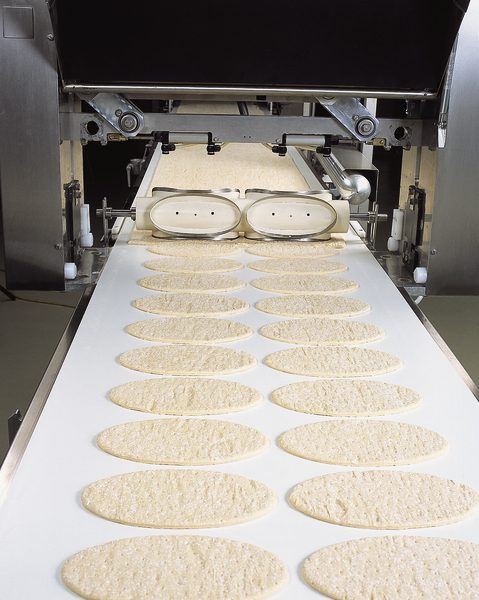Habasit releases its new Premium TPU food belts featuring significant improvements

Manufacturers in the bakery industry face numerous challenges in terms of efficiency and food safety due to the harsh operating conditions in their factories. High operating temperatures, sticky and oily products, moist environments, the risks of belt edge fray, and the effects of chemical and/or mechanical cleaning all have a significant impact on belt lifetimes and output, as well as on product contamination and waste. Habasit’s TPU food belt range has proved itself over decades. Its high-quality belts feature a uniform, pore-free surface with good release properties, plus excellent longitudinal flexibility and lateral stability at a wide range of temperatures. Now, in response to industry demands, Habasit has launched a new and improved TPU food belt line: Habasit Premium TPU food belts, with advanced features delivering longer belt service life, greater operational efficiency and line yield, and further improved food safety.
Lab- and field tested in stressful conditions
The new product range of polyether-based TPU food belts has been tested extensively in lab and field, in demanding bakery applications extending from fresh biscuit and bread dough transport to cracker production, pizza topping lines,and oven out- and in-feeds.
Significant benefits based on new features
The new belts offer four new features, each extending important benefits, particularly for operators in the bakery industry:
- Elevated temperature resistance – The new belts perform at temperatures of up to 110 °C / 230 °F continuously admissible. Particularly in bakery applications, this means a significantly extended belt service life, with a lower risk of joint damage. Higher temperature resistance also reduces delamination risks, thus improving food safety. Factory experience with applications both before and after ovens, where high temperatures and moisture are present, has confirmed excellent results in terms of belt service life.
- Improved hydrolysis resistance – Enhanced resistance to hydrolysis and better chemical resistance are achieved with a new TPU formulation. This results in better resistance to humidity, improved belt service life, and better food hygiene.
- Reduced fraying of belt edges – A combination of spun fabrics and non-fray knitwear in the belt design limits the risk of tearing long fibers out of the coating layers, which substantially improves belt service life and food safety. This combination is also nosebar suitable, permitting use with tight transfers.
- Improved low wicking via reverse side impregnation – A new impregnation formula for the reverse/running side ensures very low ingress of water and oils, which improves processing hygiene and prevents microbial growth on the belt running side. In addition, the combination of improved impregnation with an innovative bottom fabric protects against the ingress of dust, thus reducing the risk of belt shrinkage, an effect frequently seen in flour-loaded bakery applications.
In order to fully meet all food belt application needs, Habasit has also developed a range of profiles and other auxiliaries with matching chemical resistance that can be welded to belt tops and reverse sides using high-frequency welding and hot air tools. The new range of Habasit Premium TPU food belts comes with matt, glossy and waffle surfaces in white and blue, at widths of 2400 mm.
Extensive belting portfolio for the food processing industry
As the world leader for conveyor belts, Habasit has extensive experience in the food processing and food packaging industry, and offers a broad and deep portfolio of fabricbased conveyor belts, plastic modular belts, as well as monolithic and timing belts. The belts are offered with a comprehensive range of accessories.
For more information, please visit http://www.habasit.com.
News Categories
- » NEWS HOME
- » Automation & Robotics
- » Industry 4.0
- » Material Handling
- » Sensors
- » Quality & Testing
- » Machine Vision
- » Laser & Optics
- » Metalworking
- » Motion Control & Drives
- » Hydraulics & Pneumatics
- » Process Industry
- » Renewable Energy
- » Agriculture
- » Home & Office Furniture
- » Environmental Tech



